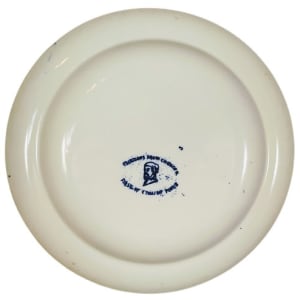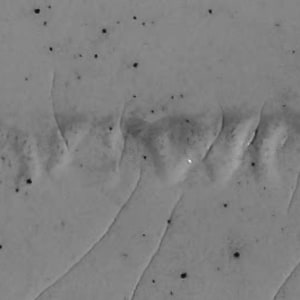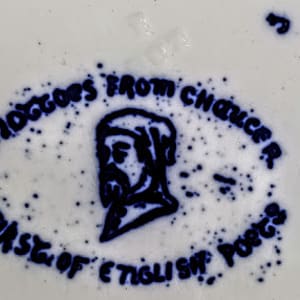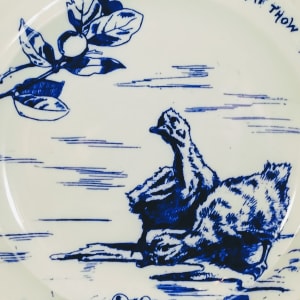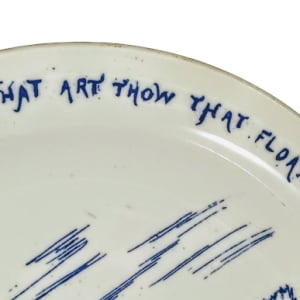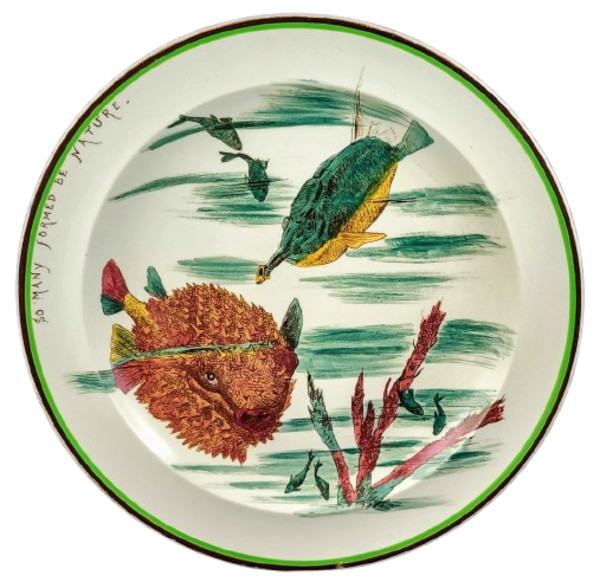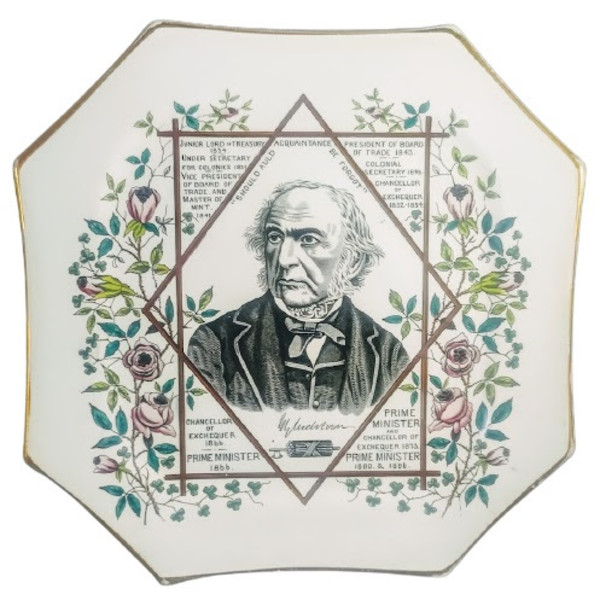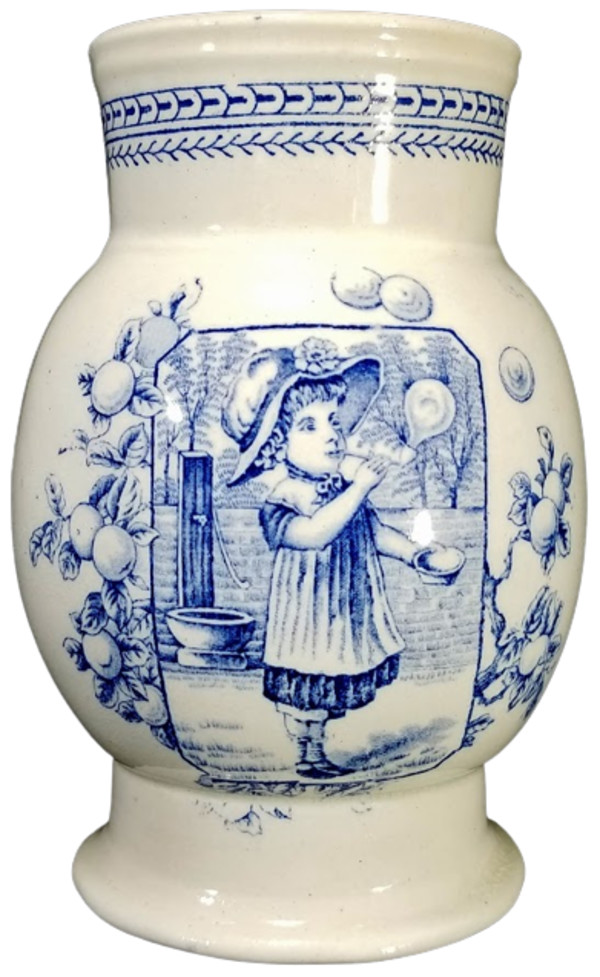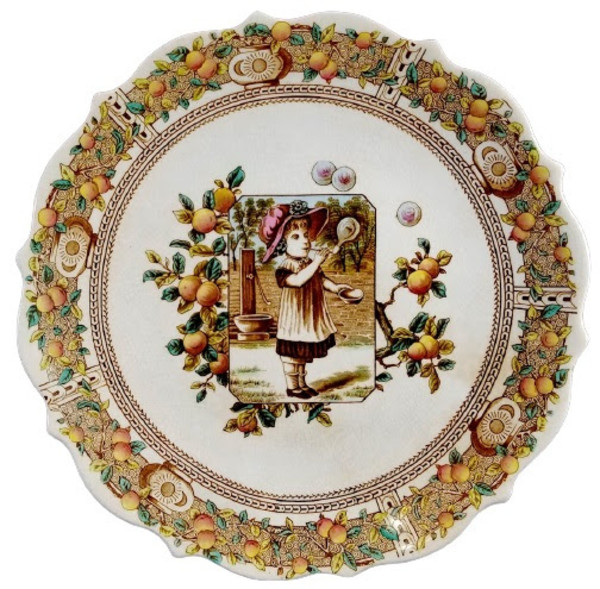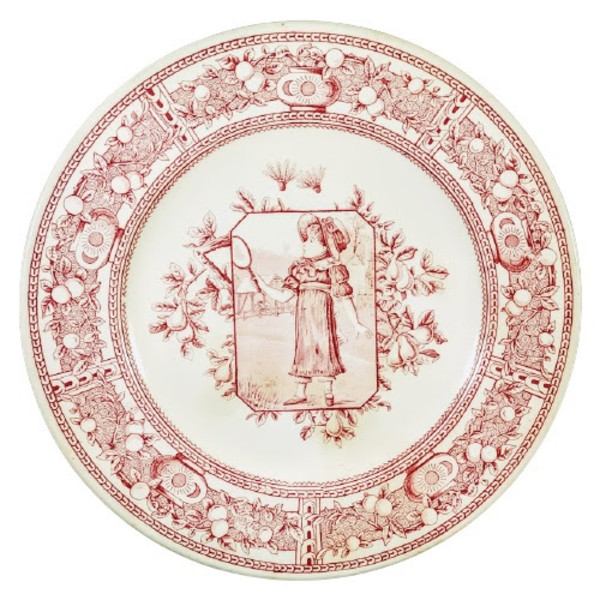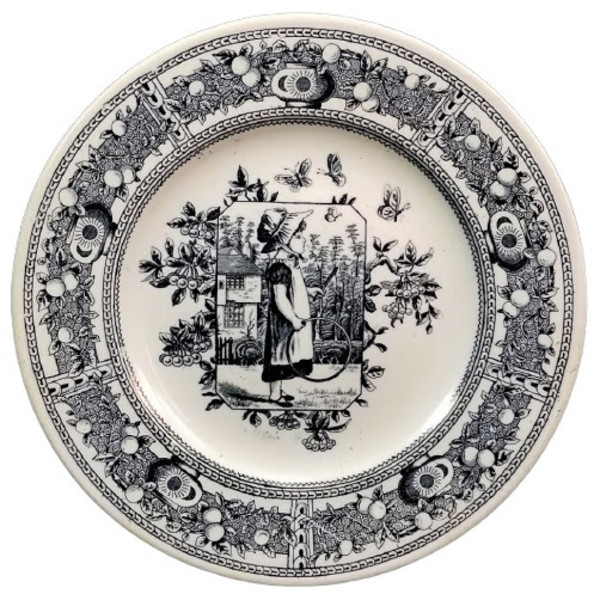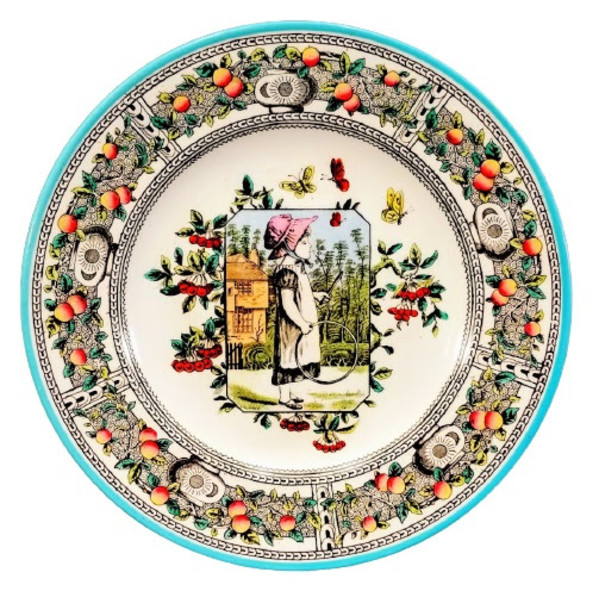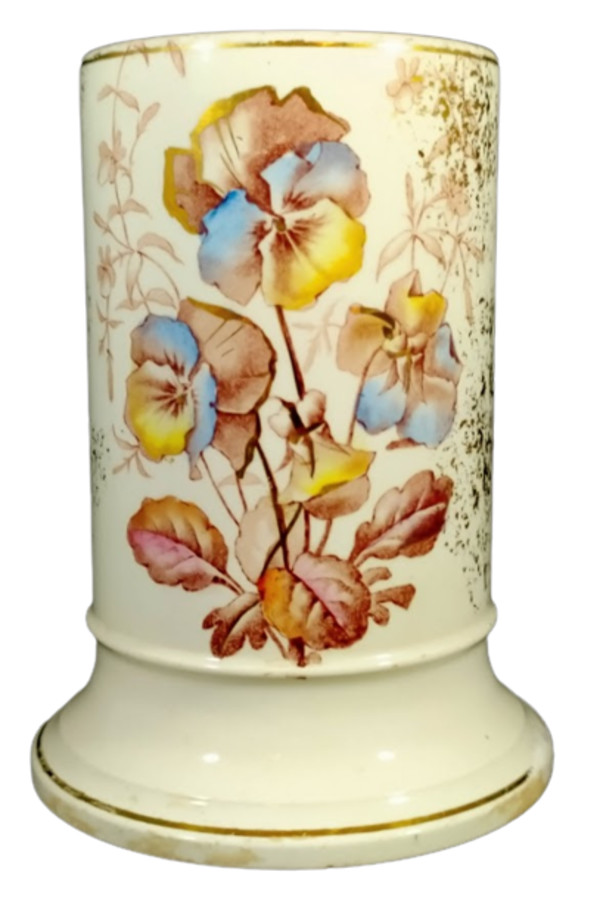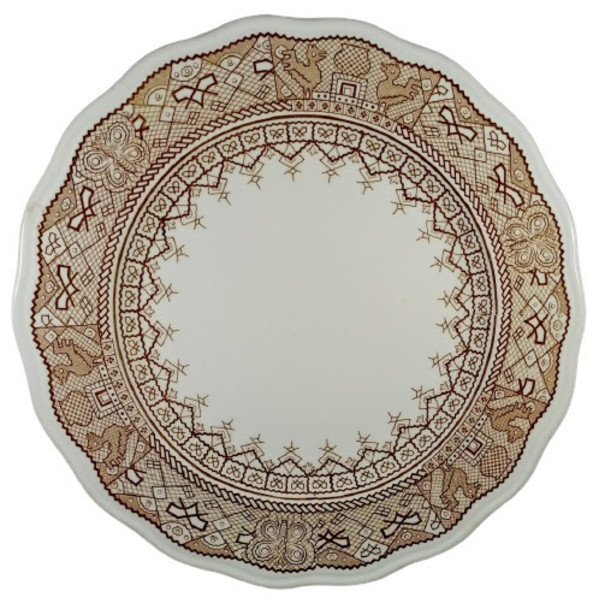- Josiah Wedgwood
- Mottoes from Chaucer, 1881
- Earthenware
- 10 x 10 in (25.4 x 25.4 cm)
-
Not For Sale
Plate, 10 inches diameter. Blue transfer. Impressed maker's mark for Wedgwood. This pattern is part of a series of 12 subjects for pearlware plates and tiles designed c. 1881 that all feature mottos from the English poet Chaucer. The motto printed here is: "But What Art Thow That Floatest Doune." Attribution of the mottos to specific works by Chaucer can be difficult and in this case, it is not known. The pattern features two ducklings at the water's edge, one staring down at something floating towards it. There is a leafy branch, perhaps oak, at the top left.
Josiah Wedgwood was born in Burslem, Staffordshire, on July 12, 1730, into a family with a long tradition as potters. At the age of nine, after the death of his father, he worked in his family's pottery. In 1759 he set up his own pottery works in Burslem. There he produced a highly durable cream-colored earthenware that so pleased Queen Charlotte that in 1762 she appointed him royal supplier of dinnerware. From the public sale of Queen's Ware, as it came to be known, Wedgwood was able, in 1768, to build near Stoke-on-Trent a village, which he named Etruria, and a second factory equipped with tools and ovens of his own design. At first only ornamental pottery was made in Etruria, but by 1773 Wedgwood had concentrated all his production facilities there. During his long career Wedgwood developed revolutionary ceramic materials, notably basalt and jasperware. After Wedgwood's death in Etruria on January 3, 1795, his descendants carried on the business, which still produces many of his designs.
- Subject Matter: Aesthetic (Miscellaneous)
- Collections: Aesthetic Transferware, Josiah Wedgwood

